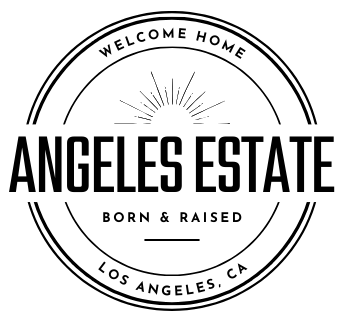As Essential Part of Every Real Estate Transaction
In the complex world of real estate transactions, one term that often arises is “escrow.” Whether you’re buying or selling property in California, understanding escrow is crucial. In this guide, we delve into the specifics of what escrow is, how it works, and its significance within the context of California real estate transactions. Keep in mind that at West Shores Realty, we have a team of Escrow officers and Lenders who work closely together to make this entire process as seamless as possible!
What is Escrow?
Escrow is a process where a neutral third party holds funds, documents, or assets on behalf of two or more parties involved in a transaction until certain conditions are met. It serves as a safeguard, ensuring that all parties fulfill their obligations before the transaction is finalized. In California, escrow plays a central role in real estate transactions, providing protection and assurance to both buyers and sellers.
The Escrow Process in California:
Opening Escrow: The escrow process typically begins when the buyer and seller enter into a purchase agreement. Once the agreement is signed, the buyer usually deposits earnest money into an escrow account to demonstrate their commitment to the transaction. In California, this earnest money is often held by a licensed escrow agent or company.
Escrow Instructions: Once escrow is opened, the parties involved (buyer, seller, and sometimes their respective agents or attorneys) provide escrow instructions outlining the terms and conditions of the transaction. These instructions detail the timeline, contingencies, and responsibilities of each party.
Due Diligence Period: In California, buyers are granted a due diligence period to conduct inspections, review disclosures, and secure financing. During this time, the escrow holder coordinates with the necessary parties to ensure all requirements are met.
Title Search and Insurance: One critical aspect of the escrow process in California is the title search. The escrow holder works with a title company to research the property’s ownership history and identify any liens, easements, or encumbrances. Once clear title is confirmed, the buyer typically purchases title insurance to protect against any unforeseen issues.
Loan Approval and Funding: For buyers relying on financing, the lender conducts its own due diligence and appraisal of the property. Once the loan is approved, the funds are transferred to the escrow account to be disbursed according to the escrow instructions.
Contingencies and Amendments: Throughout the escrow process, various contingencies may arise, such as repairs or renegotiations based on inspection findings. Any changes to the original agreement must be documented through amendments to the escrow instructions.
Closing: Once all conditions are satisfied, the escrow holder prepares the final documents for signature, including the deed, loan documents, and closing statements. Upon completion, the funds are released, and the title is transferred from the seller to the buyer.
Benefits of Escrow in California
Neutral Facilitation: By using an escrow company, both parties can trust that a neutral third party is overseeing the transaction, ensuring fairness and transparency.
Protection of Funds: Escrow protects the buyer’s earnest money and the seller’s proceeds until all conditions are met, reducing the risk of fraud or misappropriation.
Compliance with Legal Requirements: California has specific laws and regulations governing real estate transactions. Escrow ensures compliance with these requirements, minimizing the potential for legal disputes.
Streamlined Process: Escrow streamlines the closing process by centralizing communications and document management, reducing the administrative burden on buyers, sellers, and their agents.
Title Assurance: Through the title search and insurance process, escrow provides assurance to buyers that they are acquiring clear and marketable title to the property, free from any undisclosed encumbrances.
Things to Consider
Escrow is an essential function that is in place to protect both the buyer and seller in a real estate transaction. Here are some things to be prepared for:
Escrow Fees: Escrow services typically involve fees, which can vary depending on the value of the transaction and the complexity of the deal. Buyers and sellers should be aware of these costs and factor them into their budget.
Timelines and Contingencies: Delays or issues during the escrow process can impact the timeline for closing, potentially leading to additional costs or complications. Clear communication and proactive management of contingencies are essential to keeping the transaction on track.
Dispute Resolution: In the event of disagreements or disputes between the parties, the escrow holder may play a role in facilitating resolution or, if necessary, withholding funds until the matter is resolved.
Compliance Risks: California’s real estate laws and regulations are extensive, and failure to comply can have serious consequences. Buyers and sellers should work with experienced professionals, such as a trusted real estate agent (that’s me!), attorneys, and escrow officers, to navigate the legal requirements effectively. Don’t forget, I have a team of Escrow officers I can connect you with! These are people that I personally know, trust, and have seamless communication with. We’ve got your back!
And that's it!
Escrow is a fundamental aspect of real estate transactions in California, providing protection, assurance, and efficiency to buyers and sellers alike. By understanding the escrow process and its significance within the context of California’s legal and regulatory framework, individuals can navigate the complexities of buying and selling property with confidence. Working with experienced professionals like the team at West Shores Realty and West Shores Financial, and staying informed about the latest developments in real estate law, ensures a smooth and successful transaction for all parties involved.
If you’d like more information on the entire process, or if you want to be connected with a team of Escrow officers, give me a call or send a message via email or text.





